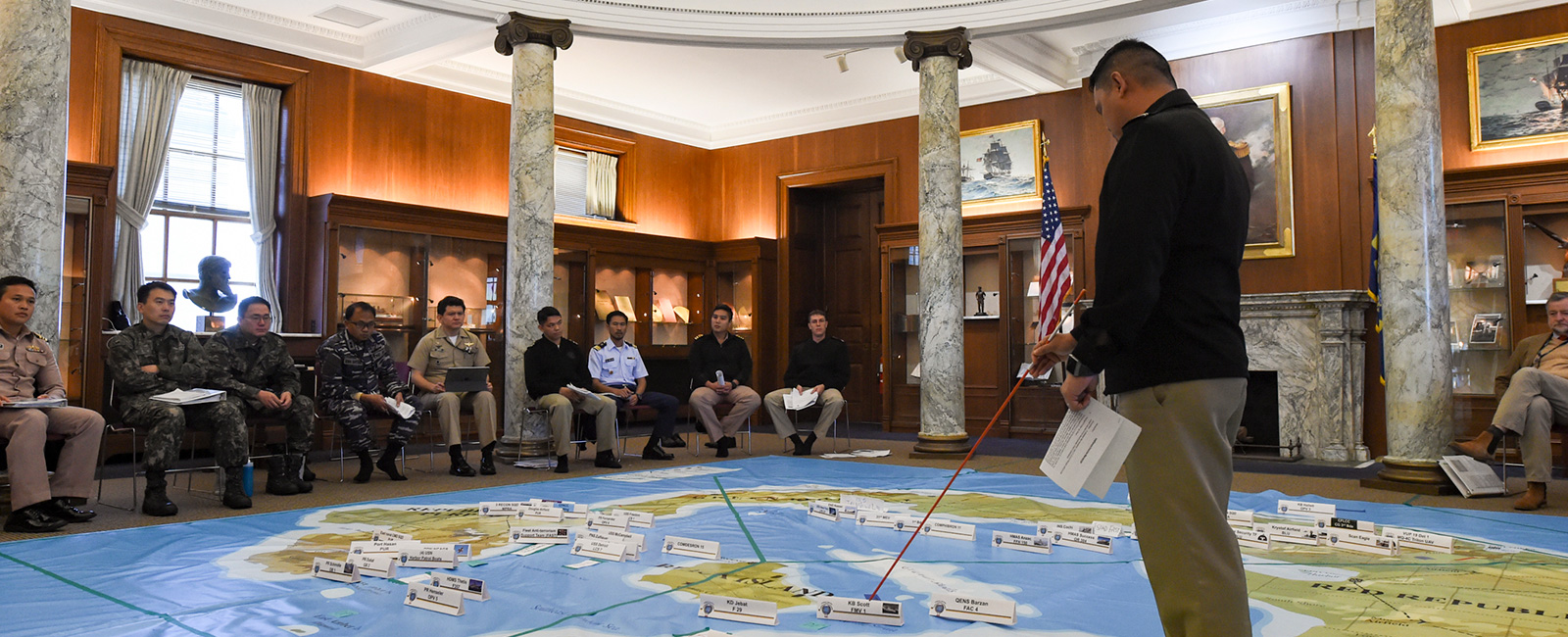
(Following from yesterday's post.)
One thing that becomes apparent when the Referee runs a proper campaign is that there is change in player behavior.
Rules Mastery
Because all players know that they can lose, there is an incentive for players to master the game because mastery confers a competitive advantage over those that are not.
This is because, being a competitive environment with a disinterested neutral arbiter in the middle (i.e. the Kriegspiel structure), players know that once they possess a full and complete mastery over the rules of the game they can discover applications of these rules that provide novel solutions to equally novel problems.
Discovering of novel solutions also generates awareness of the timing of their application; a well-timed ambush is easier to do when the player has full command of how stealth, pursuit and interception, intelligence gathering and use of force work- and easier to avoid. An ill-designed, or ill-defined, ruleset shows its lack of worth at this point.
While this is most obvious for the strategic level, where Patrons ruling Factions manuever for advantage, this also applies on the tactical level where individual characters.
The Fighter that makes full use of his power to act as a Sergeant (later a Lieutenant, then a Captain) and thus lead troops into battle is the Fighter most likely to win his way to Name Level and formally join the Faction level of play.
First he rounds up some muscle to help smack some Goblins around. Then he gathers men for a raiding party on the Hobgoblin raiders that used those Goblins. Finally he gathers an army and crushes the Hobgoblin warlord and all the allies thereof after a lengthy pursuit. He's not yet 5th level.
But, sooner or later, that will not be sufficient to win.
The winning player is the one that finds ways to employ advantages that he cannot otherwise possess. Some of this involves lengthy, and drastic, changes in a character's life (i.e. Dual-Classing for Men, lengthy downtime spent building up infrastructure to do so, etc.) and others involve making alliances with others to mutual benefit (in theory, at least; remember that Evil characters exist).
This has its benefits, but again sooner or later the player hits a boundary condition where what is available to his character is not sufficient. He must create what does not yet exist.

Setting Up The Skunkworks
It is likely that a player will run into the hardest of boundary conditions: that there is no published item, spell, etc. that can confer the competitive advantage that he needs to win. Everything published is insufficient to solve his problem, so he must invent something new.
This means that the player informs the Referee that his character (be it an individual or a faction leader) must resort to Research & Development. This is going to derive from the rules that exist for item and spell creation; it will require a high price in term of time and resources (abstracted in a monetary cost, by default; specific requirements may also be imposed).
For example, say that this player runs an Elf Fighter/Magic-User. He's gotten this character Elf Chain Mail. He's curated the best spell selection for a warrior-mage, one that lets his synergize as best he can. He enchanted the armor, and then a longsword. He used every last edge in the rules he could get to wring the best advantage out of this elf's performance- hitting the level caps for both classes in the process.
He knows that this will not be suffcient against the top-tier opposition ahead.
He goes to the Referee and tells him that he will attempt to create a new, Elf-only class akin to the Bard, that goes beyond merely being both Fighter and Magic-User and fusing the two into a single arcane martial art.

You were expecting that Bladedancer nonsense? NOPE!
The player and the Referee confer over some time about the dimensions of this class. The character remains active in play, but this Elf is focused on seeking ancient lore on such matters whenever possible (which means he's going to follow leads on them on the regular, inserting himself into other issues along the way). When he gains enough XP that he ought to be eligible to train, he instead spends that time (as per Referee ruling) on research and (re)development instead.
When the Referee is satisfied that the character's game-changing research is complete, the player's new addition to the game is allowed to hit the table. In our example, this means that our Elf debuts as a 1st Level Red Mage. Now possessed of an advantage that no one else has, the player presses this advantage as hard as he can in as many ways as he can- and as he (at self-taught rates, so he's leveling slow) advances this advantage grows and changes in ways that others cannot predict.
That's right, a competitive campaign compels crafting competitive advantage!
This, right here, is yet another way for the players to seize the initative and not rely on the Referee to spoon-feed playable content to them like something out of Wall-E. Imagine being the player opposed to this Elf and now facing him using something you have no idea as to what it is or how it works; you are in danger of getting rooked like what Zeon did to the Earth Federation at Loum.
By having players engaged in contention over something of interest to their characters, they recreate the mindsets of the great men of the past whose schemes and deeds inspired Kriegspiel and that would carry on down to Braunstein and then to RPGs.
Let them fight. Let them strive. Let them be driven to innovate in order to gain the edge they need to win. You'll never see RPGs the same way once you see it done once.
No comments:
Post a Comment
Anonymous comments are banned. Pick a name, and "Unknown" (et. al.) doesn't count.